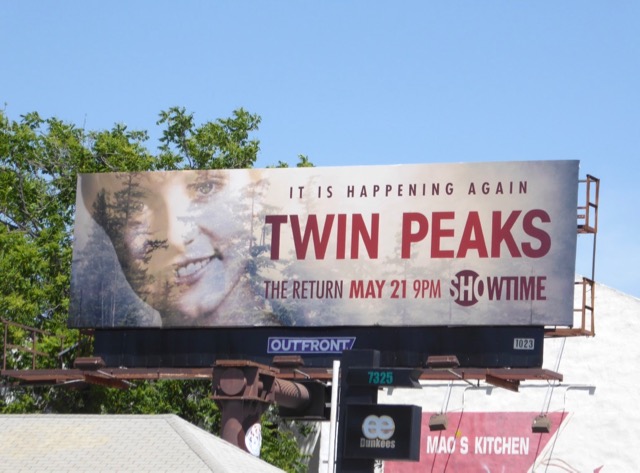
The first ten minutes (or thereabouts) of part eleven of David Lynch and Mark Frost’s Twin Peaks 2017/Twin Peaks: The Return/Twin Peaks season three were all about what I thought was going to happen: I thought that at least one of the kids out playing catch at the beginning, who make a very grisly discover indeed, was going to get hit by a speeding car coming out of nowhere; when the domestic drama that Amanda Seyfried’s Becky is currently (or maybe that should be always) enduring finally reaches a boiling point that sees her long-suffering mother, Shelly (played by Madchen Amick) going for a ride on the hood of her own vehicle, I thought something far worse than a skinned knee was going to happen to her when she was finally thrown from it; when Becky bursts into the motel where she thinks her two-timing old man is to be found, I was absolutely sure that somebody was gonna get shot — maybe even several somebodies.
But no, the timely intervention of Harry Dean Stanton’s Carl (wait until you see how he hails a ride into town) and the wise advice of busybody Norma Jennings (Peggy Lipton) saw to it that disaster was averted — with no small assist coming from Deputy Bobby Briggs (Dana Ashbrook), who really is our central figure of audience identification (as well as, officially, Becky’s dad — although I can’t see how that would come as a surprise to anyone) for what part eleven is all about, a point to which we will return momentarily.
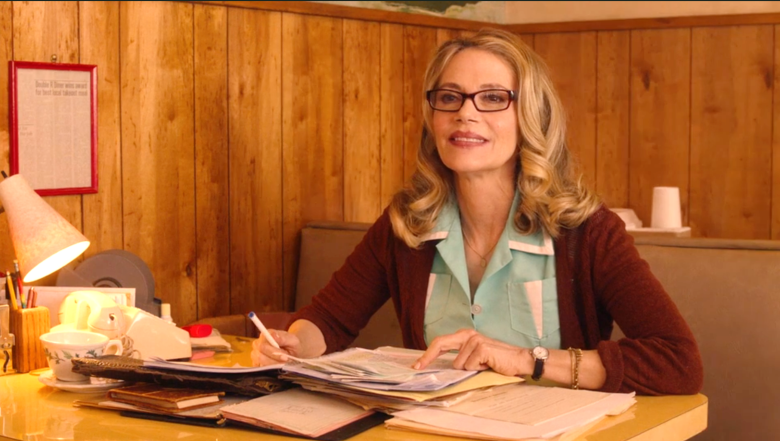
First, though, it has to be said — some bad shit really does go down, it goes down in Buckhorn, South Dakota, and Matthew Lillard’s luckless high-school-principal-turned-paranormal-blogger Bill Hastings is on the business end of it. Our fivesome of Feds and their friends (Lynch’s Gordon Cole, Miguel Ferrer’s Albert Rosenfield, Chrysta Bell’s Tammy Preston, Laura Dern’s Diane Evans, and Brent Briscoe’s Detective Dave Mackley) have — uhhhmmm — “escorted” the hapless Mr. Hastings back to the scene of his supposed “crime,” only to discover a vortex portal to the Black Lodge, an uncharacteristically overweight (but characteristically ethereal) Woodsman, and the dead, headless body (I’m sorry, but Lynch’s “she’s dead” line is fucking priceless) of the woman he supposedly killed. Within moments, though, the aforementioned Woodsman sees to it that Hastings himself joins his former paramour on “the other side,” and his method of dispatch is — well, let’s just call it grisly in the extreme, shall we? Poor Bill — but then, we’ve been saying that about him from the outset.
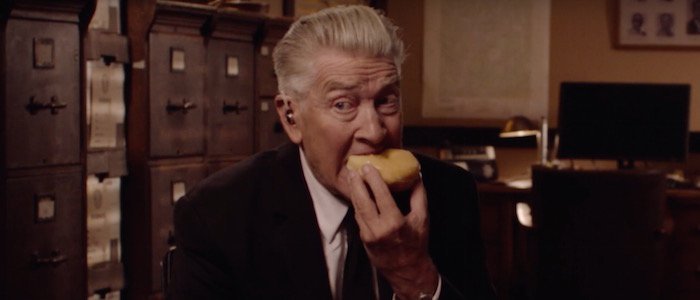
Other stuff happens, too, and plenty of it — Dougie (Kyle MacLachlan)’s Mr. Bean routine and timely purchase of a cherry pie (a “damn good” one, at that) save his ass yet again after his boss, Bushnell Mullins (Don Murray) unknowingly sets him up for a date with death at the hands of Robert Knepper and Jim Belushi’s brothers Mitchum; Amy Shiels keeps on just plain killing it as Candy; Catherine E. Coulson’s Log Lady helps guide Michael Horse’s Deputy Hawk though an ancient Indian map that he, in turn, guides Robert Forster’s Sheriff Frank Truman through; Lynch gets to talk about “the policeman’s dream” (you’re looking at it in the photo above) — but while all that definitely matters, I really do want to get back to Bobby.
He’s obviously a guy who’s learned from his past mistakes. Once a low-level drug dealer and Ben Horne’s lackey, he’s now in the business of busting his former friends as a duly sworn officer of the law. Previous installments have shown the deep sense of regret with which he views his less-than-glorious past, and we also get more than an inkling that there was much he wanted to say to his father before the Major’s his untimely demise. He’s done his level best to perform what we’d call a radical course correction on his life — and for that reason, it rips his heart out to see that his ex-wife is still running around with stereotypical “bad boys” (specifically Balthazar Getty’s Red, as we learn tonight), and that his daughter seems to have a lot more of her mom in her than she does of him. Bad habits being passed down from generation to generation are never a pleasant thing to see play out before one’s own eyes, and how much of that comes down to nature vs. how much of it comes down to nurture is the central question Lynch and Frost are asking in this segment — a point driven home when what first appears to be a (yes, you’re reading this correctly) drive-by shooting at the Double R turns out to be the accidental discharge of a carelessly-placed firearm from a vehicle stopped at a red light outside. Bobby quickly goes into heroic deputy mode, only to find that the kid who may have been handling the gun is wearing the same redneck-ass camouflage hunting garb — and has the same flat, distant, emotional affect — as his idiot, peckerwood, MAGA father. Are we then, in fact, doomed to become carbon-copy clones of our parents — or are they doing their level best to ensure that’s all we become, because it’s all that they themselves know how to teach us?
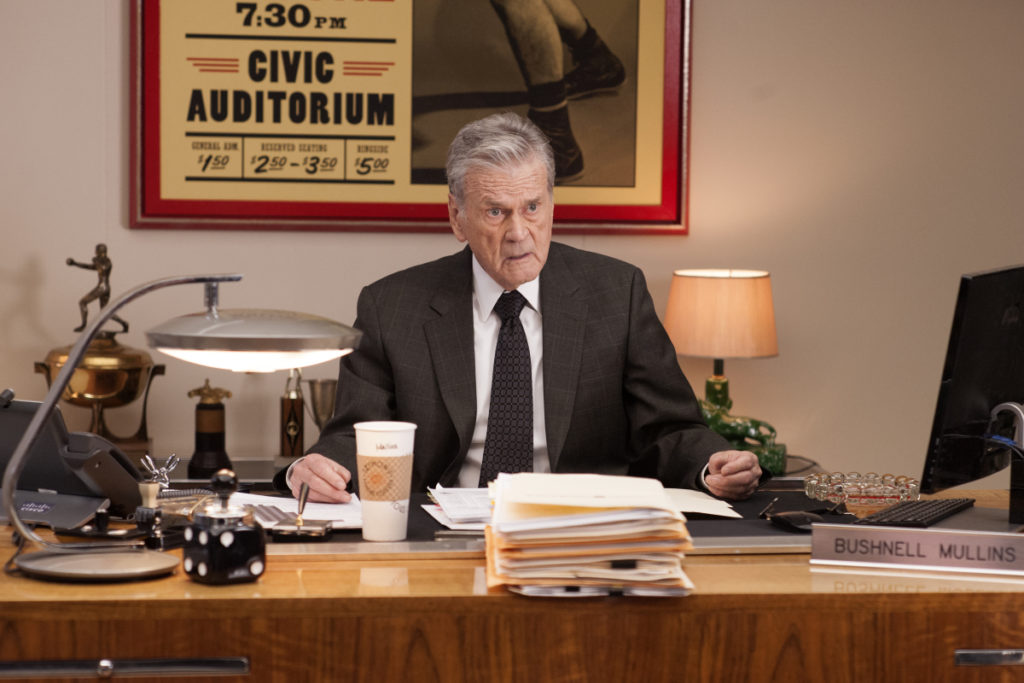
The incessant honking of a car horn and a child with a grotesque mystery illness stomp all over this reverie before we (and Bobby) have too much time to ponder it, but the question lingers in the back of the mind long after the credits (accompanied this time out by a piano-playing Vegas lounge lizard) roll, and it’s among the most profound — and perhaps ultimately impossible to answer — that Lynch and Frost have asked in this series to date.
Tags: Amanda Seyfried, Balthazar Getty, Brent Briscoe, Catherine E. Coulson, Chrysta Bell, Columns, Dana Ashbrook, David Lynch, Don Murray, Harry Dean Stanton, Jim Belushi, Kyle MacLachlan, Laura Dern, Madchen Amick, Mark Frost, Matthew Lillard, Michael Horse, Miguel Ferrer, Naomi Watts, Peggy Lipton, robert forster, Robert Knepper, Showtime, TV, Twin Peaks

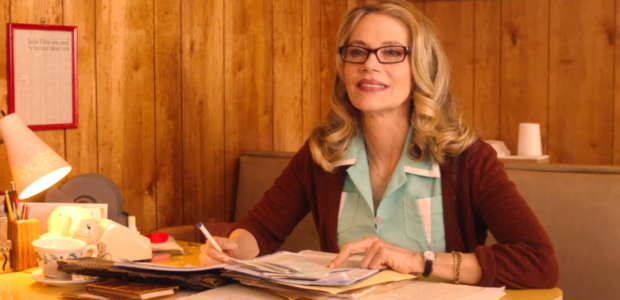
No Comments